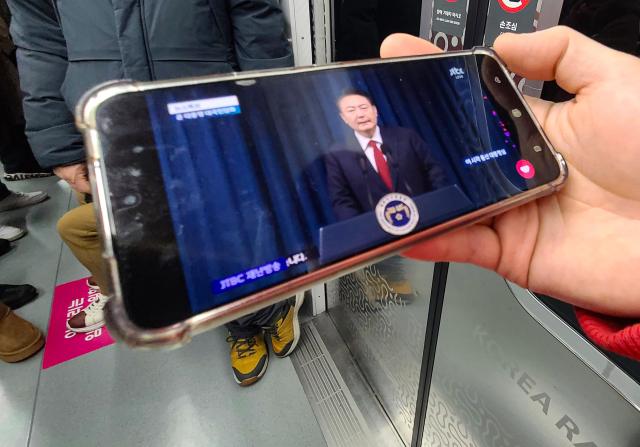
A digital media consumption report published by the Korea Press Foundation in 2023 revealed that 53 percent of 2,003 Korean survey participants consume news content through YouTube—23 percent higher than the global average of 30 percent.
According to data released by the Ministry of Science and ICT on Saturday, Korea's 5G mobile traffic is expected to surpass one million terabytes (TB) this month, marking a significant milestone since the ultra-fast mobile network was launched in early 2019.
In October, users consumed 996,782 terabytes of 5G mobile data, and industry experts predict that December will break the one million TB threshold, with average personal consumption likely exceeding 30 gigabytes. This represents a notable increase from the year’s typical monthly personal average, which ranged between 24 and 29GB.
The surge coincides with the political crisis triggered by the National Assembly’s Dec. 14 approval of an impeachment motion against President Yoon, who declared emergency martial law on Dec. 3, citing threats to national security.
Yoon's abrupt declaration of martial law sparked public outrage, leading millions to rally on Dec. 14 at Yeouido, the river island in Seoul where the National Assembly is located. Protest organizers estimate that approximately three million people participated.
"Monthly per-user 5G data traffic, which had stagnated around 29GB, is expected to surpass 30GB due to increased YouTube news viewing during the impeachment situation," a telecommunications industry official stated. Traffic spikes were particularly noticeable following the Dec. 3 martial law declaration, which caused a two-hour outage on the Naver portal.
To manage the surge in demand, telecommunications companies deployed 39 additional mobile base stations during large-scale rallies on Dec. 7 and Dec. 14. These rallies drew hundreds of thousands of citizens, many of whom streamed live YouTube coverage of the impeachment vote.
A recent Ericsson LG report projects that 5G’s share of global mobile data traffic will increase from 25 percent in late 2022 to 34 percent by the end of this year, eventually reaching 80 percent by 2030. The report highlights artificial intelligence and extended reality (XR) services as key drivers of future 5G traffic growth.
Copyright ⓒ Aju Press All rights reserved.


View more comments